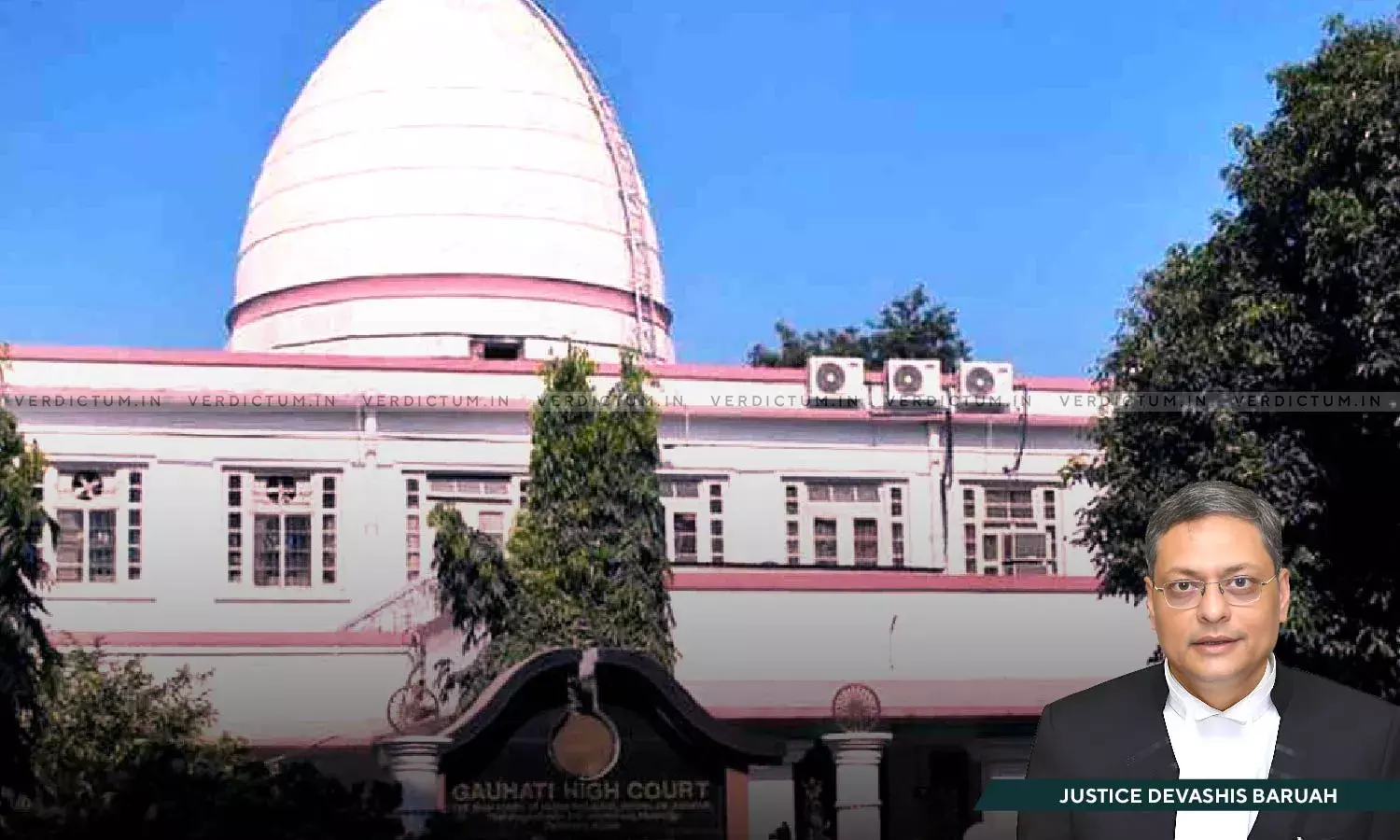There Shall Be Equality Of Opportunity In Employment: Gauhati HC Quashes Appointment Of 935 Police Constables Without Advertisement
The Gauhati High Court has quashed the appointment of 935 Police Constables without advertisement during the period from January 2018 to October 2019 by the Nagaland State.
The Court was deciding a batch of writ petitions preferred by the unemployed persons who met the eligibility criteria and hence, assailed the appointment of 935 constables.
A Single Bench of Justice Devashis Baruah remarked, “Article 16 is a fundamental right which provides that there shall be equality of opportunity for all citizens in matters relating to employment or appointment to any office under the State. The main object of Article 16 is to create a Constitutional Right to equality of opportunity and employment in public offices. The words “employment or appointment” cover not merely the initial appointment but also other attributes of service like promotion and age of superannuation, etc.”
Advocate Z. Zhimomi appeared for the petitioners while Advocate General (AG) K.N. Balagopal, Additional Advocate General (AAG) T. Khro, and Advocate T.B. Jamir appeared for the respondents.
In this case, as per the petitioners’ case, they were indigenous unemployed Naga youth possessing requisite qualifications and eligibility to the various posts wherein the respondents were appointed on a regular basis without any advertisement. The petitioners referred to the office memorandum wherein it was mandated that no direct recruitment shall be made by the Departments without publicly inviting application in the prescribed procedures. The petitioners on filing applications under the Right to Information Act, 2005 came to learn that out of 1140 posts of Constables, only 206 posts were filled up through open recruitment vide an advertisement.
It was submitted that the remaining 935 constables were appointed without any advertisement. It was further contended that all the 935 appointments to the post of Constables on regular basis were made through backdoor thereby denying opportunities to the petitioners and thousands of unemployed Naga youths in general who were eligible to apply to the posts of Constables and as such, the appointments so made in favour of the respondents were illegal in nature and liable to be interfered with by the Court.
The High Court after hearing the contentions of the counsel observed, “Article 14, 15 and 16 of the Constitution encompasses an equality code in pursuance of the preambular values of equality of status and opportunity and social justice. Article 14 lays down general principles governing equality by postulating that there must be “equality before law” and “equal protection of law”. Both these expressions are different in content and applicability. The expression “equality before law” means that the same law is required to be applied to those who are similarly situated. The expression “equal protection of law” means amongst equals, law must be equally administered. Therefore, the expression “equal protection of law” casts a positive obligation on the State to ensure that everyone may enjoy equal protection of laws and no one is unfairly denied this protection.”
The Court further noted that the Supreme Court in various judgments has held that the appointment to any post under the State can only be made after making a proper advertisement inviting applications from eligible candidates and holding of selection by a body of experts or a specially constituted committee where members are fair and impartial through a written examination or interview or some other rational criteria for judging the inter se merit of the candidates who applied in response to the advertisement made.
“The submissions so made, in the opinion of this Court is misconceived as the requirement to meet the departmental criteria of physical activities is a necessity and essential eligibility criteria. The same cannot be relaxed as it would violate the mandate of Sub-Rule (3) of Rule 20 of Part III of the N.P. Manual. This Court also cannot be unmindful of the fact that the appointments to be made are for Police Constables and not meeting the basic eligibility criteria would result in inefficiency in Police Forces”, it said.
The Court also observed that the submission that the respondents having advanced in age would not be able to compete with fresh candidates is also misconceived and a too narrow approach taken by the State inasmuch as pursuant to the fresh advertisement, all eligible candidate between the age of 18 to 35 years would be entitled to participate in the fresh selection.
“It cannot be conceived as submitted by the learned Advocate General that only candidates of 18 years would participate pursuant to the advertisement to be issued. Under such circumstances, the relaxation sought for on the basis of Annexure-A to the affidavit dated 20.08.2024 would be amount to relaxing the basic qualification or the essential eligibility criteria which is not permissible. … Accordingly, the question of granting relaxation as sought for in terms with Annexure-A to the affidavit dated 20.08.2024, other than age relaxation, is not permissible”, it added.
The Court took note of the fact that with the setting aside and quashing of the appointments of the respondents, a void would be caused to the Police Forces of the State of Nagaland for maintaining the law and order situation. Hence, it permitted the State to continue with the services of the respondents.
“The private Respondents however would have the option to continue in the service during this limited period of time or opt for preparing for the fresh selections to be held”, it clarified.
Accordingly, the High Court disposed of the petitions, quashed the appointments, and directed the State to take steps for holding fresh selection of 935 posts of constables via advertisement.
Cause Title- Kekhriesilie Richa and 25 Ors v. The State of Nagaland and 57 Ors.




